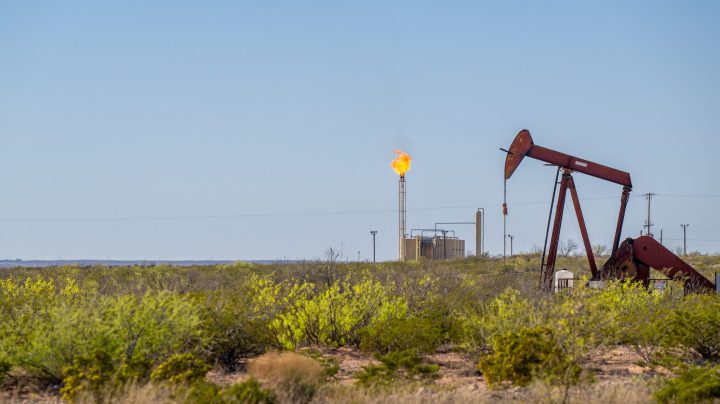
The U.S. exports more petroleum than it imports. So why are we importing at all?
The U.S. exports more petroleum than it imports. So why are we importing at all?

If you notice that you’re paying more at the pump at some point over the next few weeks, that may be because you’re buying a different blend of gasoline as stocks of winter gas run out and refineries nationwide switch to producing summer blends.
To feed those refineries, last year the U.S. imported more than 8.5 million barrels of petroleum a day. Meanwhile, the U.S. also exported more than 10 million barrels a day.
Wait, what? Why are we selling that oil instead of using it ourselves?
It’s mostly a chemistry problem. The crude oil we’re buying is thick and has lots of sulfur, hence it’s called heavy sour. The stuff we’re pulling up isn’t and doesn’t, so it’s called light sweet.
“All that variation in the chemistry of the oil means that you can’t refine all oil the same way. They have to go through different processes,” said Hugh Daigle, a professor of petroleum engineering at the University of Texas at Austin.
He said our refineries were designed to process oil coming from Mexico and Venezuela. “And a lot of that tends to be relatively heavy and relatively high in sulfur,” he said.
Then a little over a decade ago, shale fracking took off in the U.S., and so did the supply of light sweet oil. But even if U.S. refineries could flip a switch and start refining that oil, GasBuddy analyst Patrick De Haan said it’s coming out of the ground in the wrong places.
“The need is infrastructure,” he said. “You may produce all this light sweet crude oil in Texas. But if you don’t have pipelines to the nation’s refineries to deliver it, how are you going to be able to utilize it?”
So importing foreign crude oil is cheaper. Meanwhile, De Haan said, increasing renewable energy demand is making investments in fossil fuels riskier.
On top of the infrastructure obstacles, economist Kevin Hack with the Energy Information Administration said the U.S. gets a better deal from countries with heavy sour oil supplies.
“Because it’s harder to refine them, they tend to be priced more cheaply than a light sweet crude oil,” he said.
So we buy and refine the cheaper stuff, and we sell our more expensive stuff to places that can’t do that. There’s one more discount: The majority of our oil comes from our closest neighbor.
“There’s also not a lot of ability for Canadian producers to move it outside of Canada,” Hack said.
That strong relationship with Canada makes the U.S. oil supply more resilient to geopolitical turmoil. Oil analysts point to Russia’s ongoing war against Ukraine as an example. There was a gas price spike when countries stopped buying Russian oil, but relatively quickly, the global market reached equilibrium again.
There’s a lot happening in the world. Through it all, Marketplace is here for you.
You rely on Marketplace to break down the world’s events and tell you how it affects you in a fact-based, approachable way. We rely on your financial support to keep making that possible.
Your donation today powers the independent journalism that you rely on. For just $5/month, you can help sustain Marketplace so we can keep reporting on the things that matter to you.











